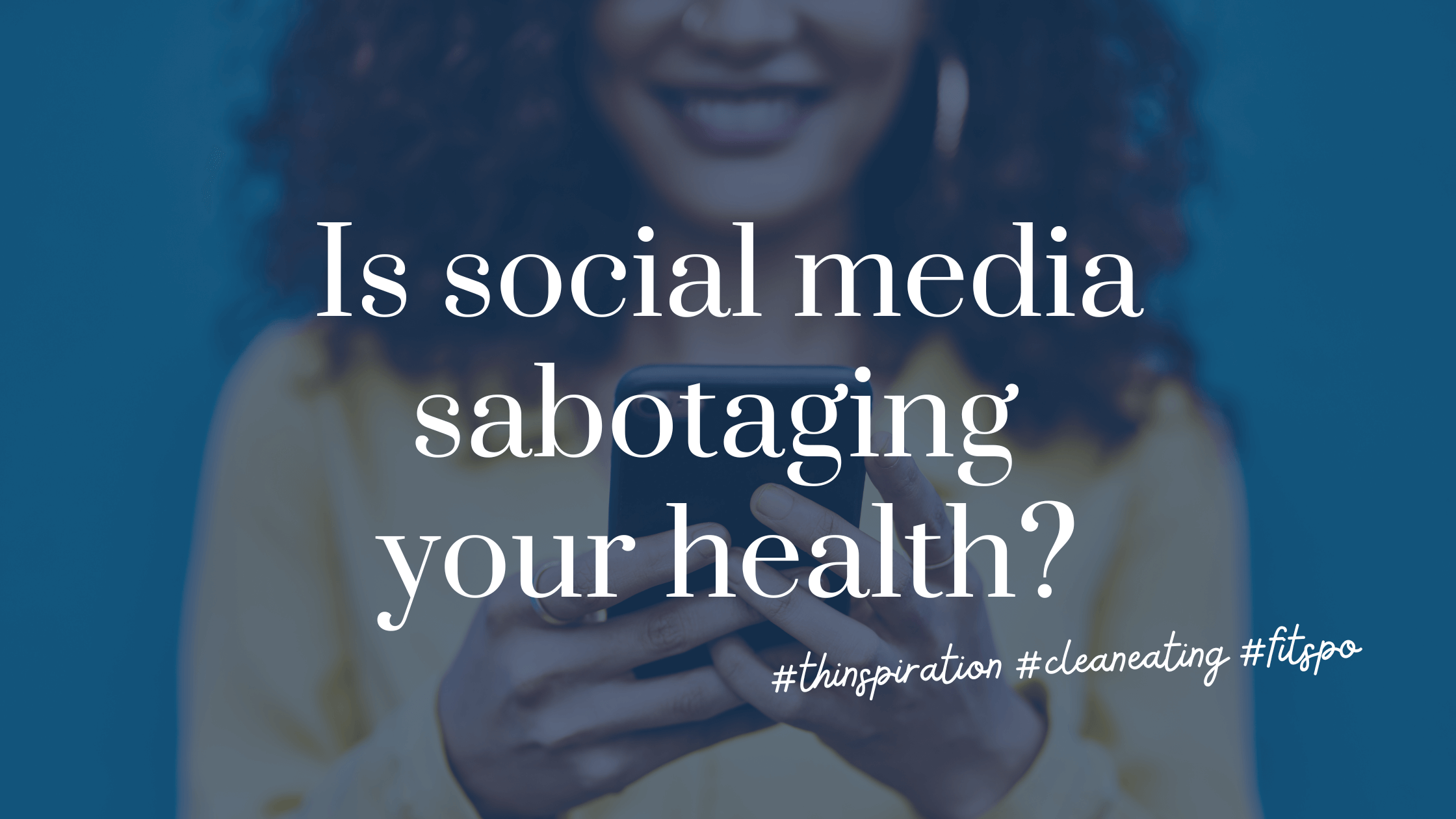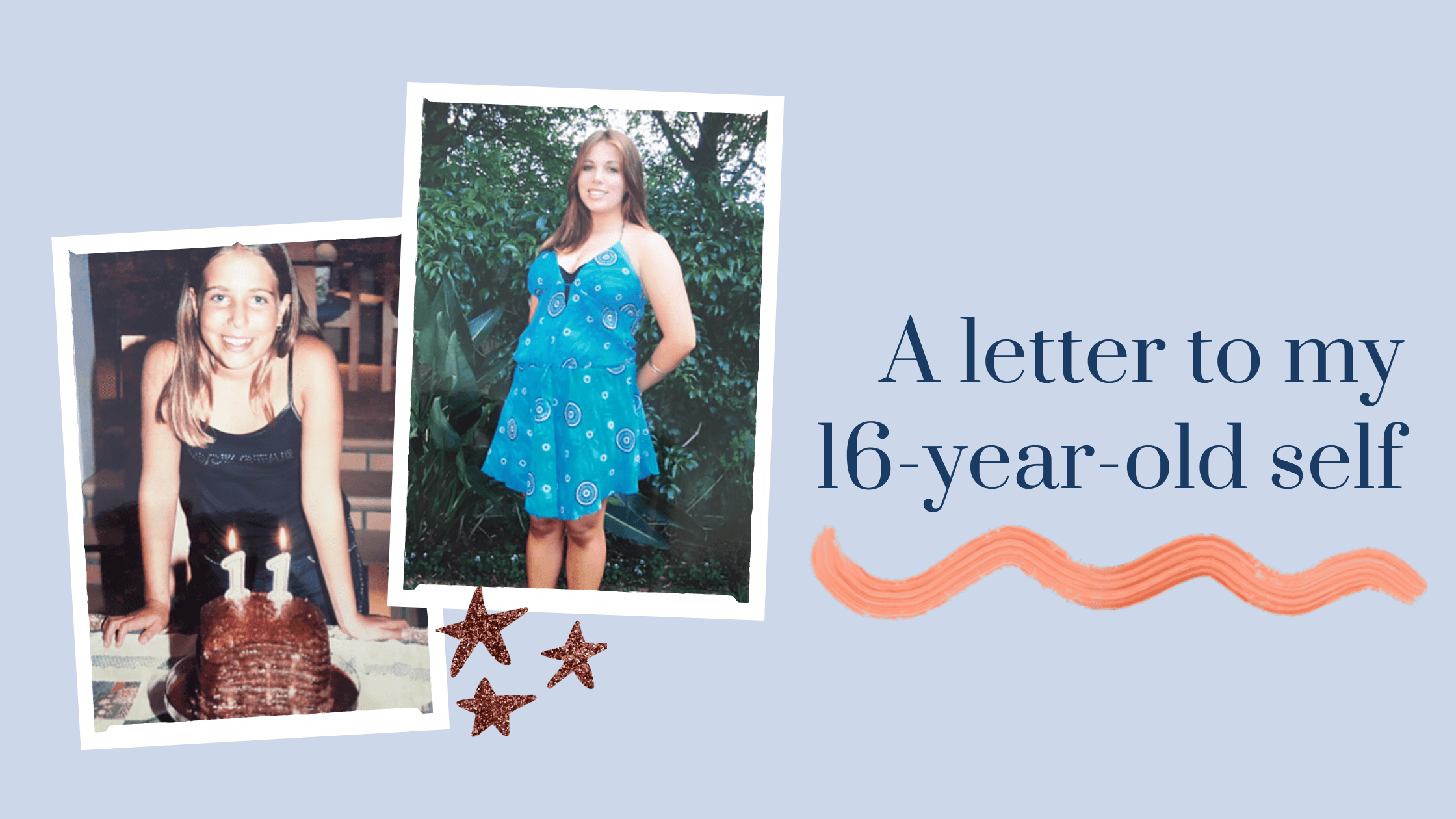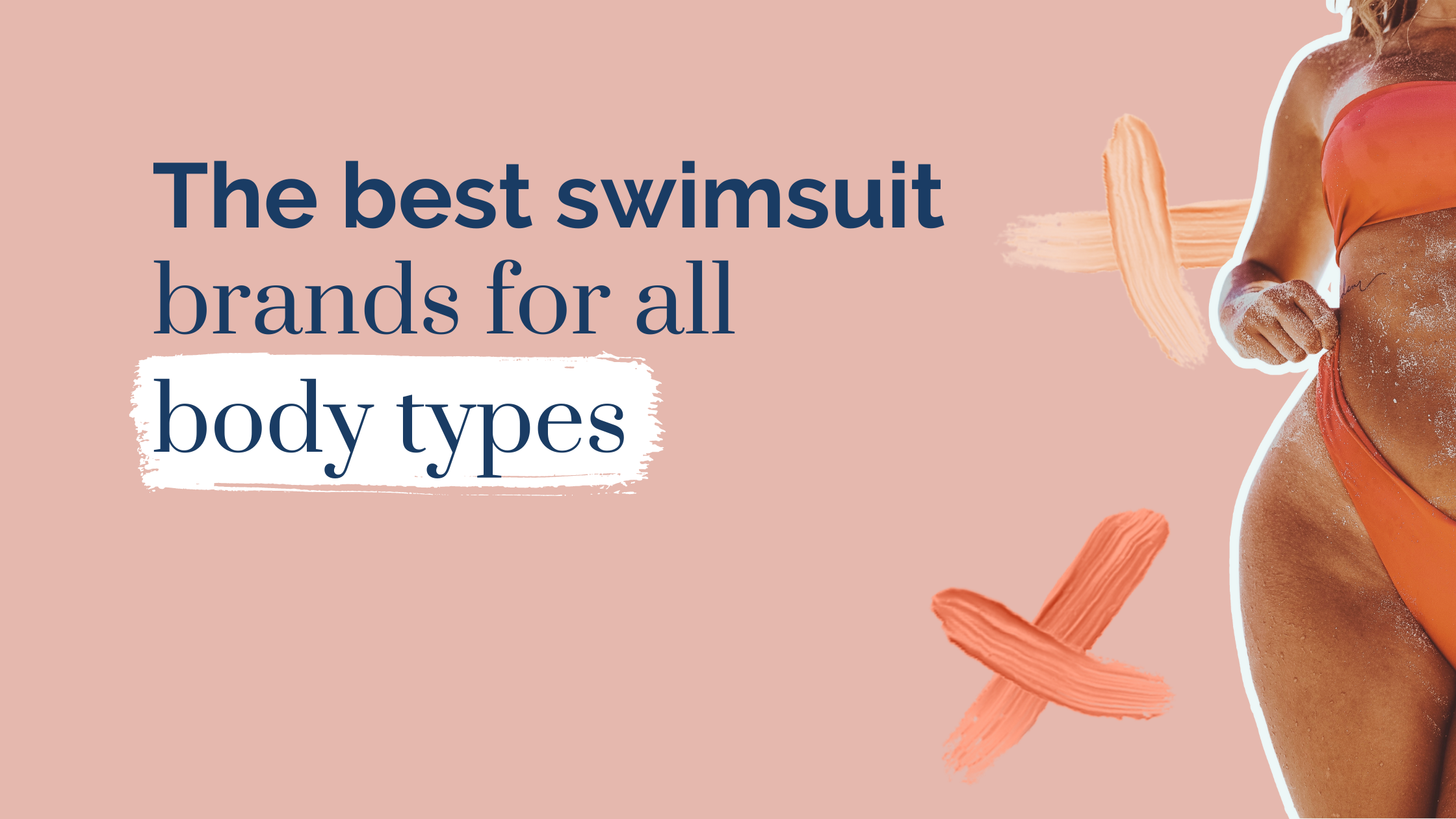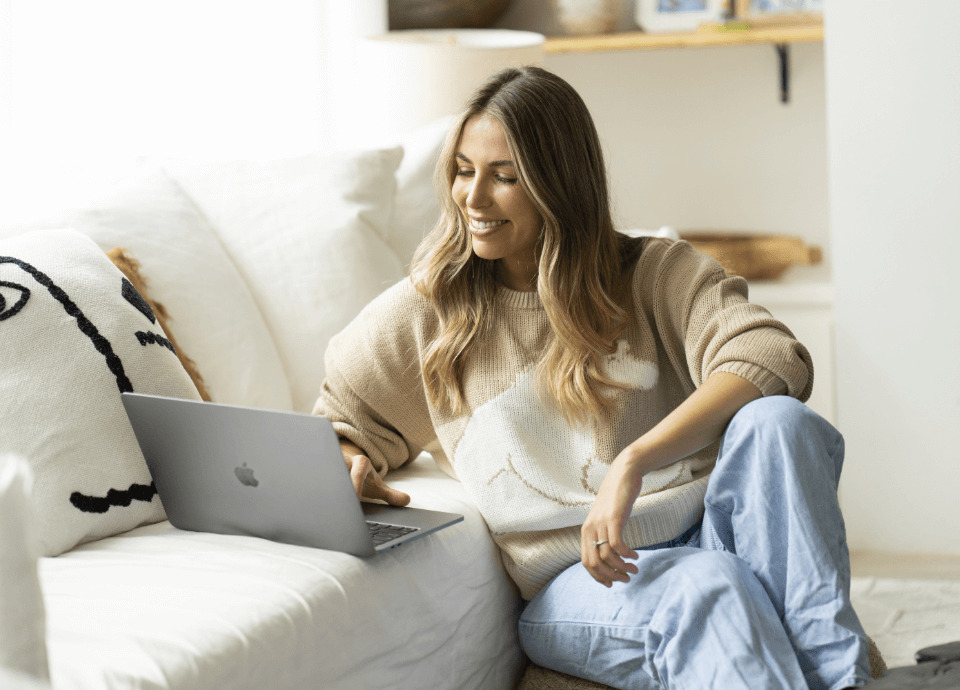Is Social Media Sabotaging Your Health?
Do photos of ‘perfect’ models or super flexible yogis make you feel fat, flabby and inflexible? Is social media sabotaging your health?
There are some people who I can’t follow on social media anymore. Why?
Social media is a breeding ground for envy. Some days, I find that the act of scrolling through my newsfeed can leave me feeling insecure.
And I really don’t think I am alone.
Admittedly, photos of ‘perfect’ models or super flexible yogis can make me feel fat, flabby and inflexible. And I’ve heard that looking at beautiful images of rainbow salad bowls can make a humble sandwich feel inadequate – and less than healthy.
Not only can social media make us feel insecure, it’s doesn’t always inspire the way we want it to.
If you hadn’t already realised, ‘thinspiration’ or ‘fitspiration’ doesn’t actually help you lose weight or get healthier in the long term. That is because it uses shame and fear as motivation. And whilst fear and shame initiate change, they don’t sustain change for long…
 So-called ‘Fitspiration’ tries to use shame and fear to guilt us into losing weight
So-called ‘Fitspiration’ tries to use shame and fear to guilt us into losing weight
Social media can make us think that in order to be healthy – we need to be perfect.
Social media tells us: “We must eat rainbow quinoa salads, drink green juices, be super flexible with a toned stomach in order to be healthy.”
Which is sad because it can do more harm that good. I whole heartedly believe that you don’t need to be perfect to be healthy.
Any healthy habit you adopt is incredible.
Aiming for ‘perfect’ can quickly make us obsessed with food and exercise. It can make you feel anxious around food, cause you to say no to social occasions or refuse to miss even one workout for even special events.
 Insta-famous social media influencer Essena O’neill caused a stir when she re-captioned her social images after coming out and saying social media is fake. Caption reads: “NOT REAL LIFE – Took over 100 in similar poses trying to make my stomach look good. Would have hardly eaten that day. Would have yelled at my little sister to keep taking them until I was somewhat proud of this. Yep so totally #goals”.
Insta-famous social media influencer Essena O’neill caused a stir when she re-captioned her social images after coming out and saying social media is fake. Caption reads: “NOT REAL LIFE – Took over 100 in similar poses trying to make my stomach look good. Would have hardly eaten that day. Would have yelled at my little sister to keep taking them until I was somewhat proud of this. Yep so totally #goals”.
You can’t guilt yourself into losing weight.
After struggling with my weight for so many years and battling to manage my anxiety, I’ve come to believe that your mental health is just as important as your physical health. In fact, it may even be more important.
If social media is making you feel insecure, it’s harming your health and your weight. The good news is that you can do something about it.
1. Accept that Social Media is Scripted
When you look at social media, know that it is only the ‘highlights reel’. Thanks to filters, Photoshop and apps, the images on social media are perfectly stylised versions of real life.
Everyone shares only the best moments of their life on social media. It’s important to understand that you’re only seeing the best 10% (or so..).

2. Unfollow, Unsubscribe, Turn off Notifications…
Are certain social media accounts that make you feel envious or upset every time you log on? I can relate! I’d recommend unfollowing them. Or ‘hide’ their posts. If they are a ‘friend’ on Facebook, you can ‘turn off notifications’.
As I said, there are accounts that I can’t follow anymore. And I think that’s ok… But I also actively opt into accounts that make me feel good. I subscribe to people who actually inspire me to be healthy both in body and mind.
3. Be honest, where possible
I thought I would share my experience with you because envy is something that affects us all. I find it really tough running a social media account on Facebook and Instagram that is meant to inspire people to be healthy – but I’m also scared of making people feel like their food isn’t healthy enough.
Please know that I’m always trying to keep it real by having a no photoshop policy, sharing the ‘sometimes’ food I eat along with my heathy food and not sharing fitness or bikini shots. I’m trying to be as honest as possible. It’s tricky.
What can you do to be more real on social media?

4. Be Grateful
Every night before bed, my partner and I go through 3 things that we are grateful for that day. We try to make it specific and use examples. I started this habit about a year ago when I was struggling with anxiety. And I really do think it helps.
Having gratitude is no longer a wishy, washy hippy concept. Being grateful doesn’t take much time but it can have a positive impact on your happiness level. You can make time for it in your day. Perhaps, each night you can go around the dinner table and say what you’re grateful for… This is a great exercise for kids too.
5. Explore your Envy
Not ready to let go of the glorified news feed yet? Modern day philosopher Alain de Botton suggests we take particular note of our envy because:
Envy is a roadmap for who you want to become.
Ask yourself – why am I feeling envious? This information will help you understand what you value and identify what you need to work towards.
🎙️ Do you need a little help with this? Listen to my podcast No Wellness Wankery, which will help you sidestep wellness wankery (phew!) so you can be healthy without dieting and feel better in your already wonderful body.






